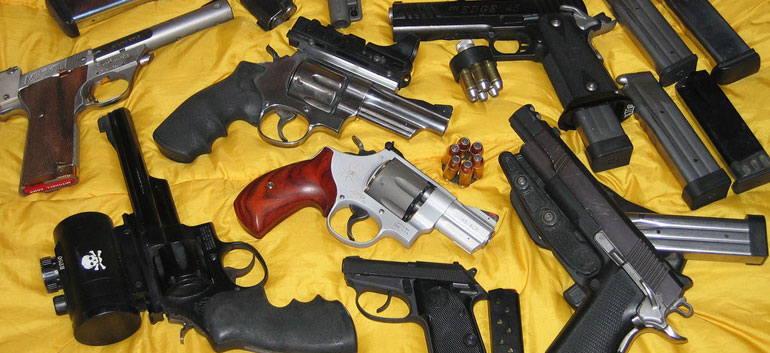On the same day the United Nations announced that Peru had surpassed Colombia as the world’s leading producer of coca, both countries signed the UN’s Arms Trade Treaty, created earlier this year with the goal of preventing weapons from falling into the hands of human rights violators, such as Colombia’s guerrilla and neo-paramilitary groups, both of which rely on the drug trade for financing, and orchestrate forced displacements and other international crimes against humanity in the interest of cultivating drug and mining profits.
MORE: Peru overtook Colombia as world’s #1 coca leaf grower: UN
President Juan Manuel Santos signed the Treaty himself, as part of a visit to the UN aimed at garnering international support for Colombia’s ongoing peace talks in Havana with the FARC rebel group, the country’s oldest and largest.
MORE: Colombia calls on world to respect eventual peace deal with FARC
Colombia became the 88th country to sign the Treaty, which will now have to be approved by the country’s congress.
So far, only four countries have passed the Treaty into internal law, and the Treaty will not take effect until 50 of the 89 countries to sign on thus far have done so.
Once the Treaty is active, it will create the first international standard of arms dealing, with measures designed to prohibit the sale or exchange of weapons to both state and unofficial actors linked to human rights crimes, or to countries in which there is the danger that weapons could be involved in such crimes in the near future. The Treaty also puts new responsibilities on armed forces to tighten controls over existing stockpiles, ensuring guns are not available via resale or illegal transfer.
Should the Colombian Congress ratify the Treaty, Colombia will be agreeing to:
- Regulate the transfer of convencional arms, ammunitions, parts and components
- Prohibit the exportation of conventional arms, ammunitions, parts or components when there is knowledge that they could be used to perpetuate war crimes, genocide, attacks against civilians and other violations of the Geneva Convention
- Evaluate integrally the risk that all weapons transfers have in undermining peace and security or facilitating grave violations of international humanitarian and human rights, terrorism and organized crime
- Keep in mind the risk that arms can be redirected or diverted to other destinations and users than the original
- Present annual updates regarding international transfers and relavant activities to the other Member States, to promote better transparency in international arms commerce
President Santos commented after the signing that his administration has been actively pushing for the Treaty since its formative stages earlier this year.
Human rights group, meanwhile, both internationally and within Colombia, praised the deal as an important step toward alleviating global suffering, and specifically, Colombia’s long-standing human rights crisis that, according to one group, keeps “millions of people living daily under the fear and risk of rape, aggression and displacement”.
Sources
Official UN Arms Trade Treaty website
Colombia firmara hoy Trato de Comercio de Armas (RCN)
Colombia y Peru firman tratado sobre Comercio de Armas (El heraldo)


